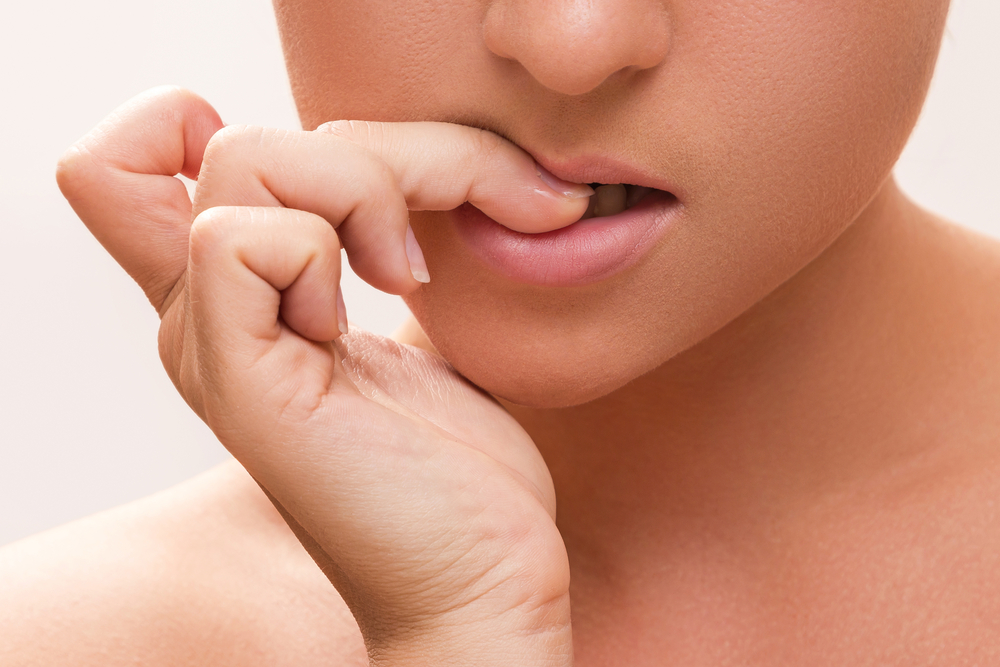Toothbrush Tips for Cold and Flu Season
Cold and flu season has arrived, and we bet you've stocked up on cough drops, tissues, and hand sanitizer. But have you thought about your toothbrush? While proper toothbrush hygiene...

Fingernail biting is one of the most habitual bad habits that people of all ages find challenging. While it may seem like a harmless habit, biting your fingernails can quickly lead to damaged teeth without you realizing it’s happened. Constant fingernail biting can cause TMJ and issues with opening and closing your jaw correctly in the most severe cases.
Compulsive fingernail biting has commonly been thought of as a nervous habit. Recent studies indicate that it can also have to do with boredom and perfectionism in addition to those struggling with anxiety. Fingernail biting is one of several body-focused repetitive disorders, including hair plucking and picking at the skin. Some patients may find fingernail biting comforting, or it can also be performed absentmindedly out of boredom. Many people who bite their nails don’t even notice that they are subconsciously doing it, making it complicated to quit.
If you are a compulsive nail biter, it’s likely that you already know some of the adverse effects the bad habit can cause. Ingrown nails, skin infections, and a higher likelihood of contracting viruses are some of the overall health consequences. That being said, the most notable damage can happen to your teeth.
Wearing, chipping, and cracking
The grinding of the front teeth also causes those teeth to shift into less-than-ideal positions. In the process of your teeth being worn down, they are also more likely to chip or crack.
Malocclusion and gaps
Grinding the front teeth together to bite through fingernails can gradually cause your teeth to shift. In time, this creates a gap, or malocclusion, between the top teeth that lead to alignment issues.
Increased risk of bruxism
Chronic fingernail biters are more likely to develop a chronic teeth-grinding habit. A study published in General Dentistry has drawn a direct link between those that bite their fingernails and how they’re at an increased risk for developing the habit of grinding their teeth.
Gingivitis
Your fingernails trap a significant amount of dirt and microorganisms under them. It should come as no surprise that anyone repeatedly putting their fingers into their mouth are at a higher risk of ingesting harmful bacteria. Fingernail biting is often one of the top contributing factors of gingivitis.
Root resorption
The physical pressure that chewing your nails places on the teeth can cause the jawbone to begin to re-absorb the roots of those teeth. This results in the weakening of those teeth used for the biting motion, which increases the risk of tooth loss.
If not treated, teeth grinding can have severe consequences such as:
On its own, fingernail biting itself won’t cause permanent damage. However, there are many reasons to stop that should be taken into serious consideration, including:
It can make your nails grow irregularly – If you damage the tissue around your nails, they may stop growing the way they should, giving you abnormal-looking nails.
It can negatively impact your smile – You can chip, crack, or break your teeth when you bite your nails. Over time, nail biting can even cause jaw problems.
It can make you sick – Your hands and nails are often covered in germs. When you’re putting your fingers in your mouth multiple times a day, it increases your chances of contracting a virus that can make you sick. The skin damage you can cause when you bite your nails also creates an easy way for germs to get into the body.
The only way to stop biting your fingernails is to consciously commit to quitting. There are many different strategies nail-biters can use successfully to help overcome the urge to bite their nails, including:
Our patients’ oral health is our top concern, which makes us your biggest ally against bad habits that put your oral health at risk. Call Aubrey Baudean DDS today with any questions or concerns about nail-biting and how we can help you break the bad habit.